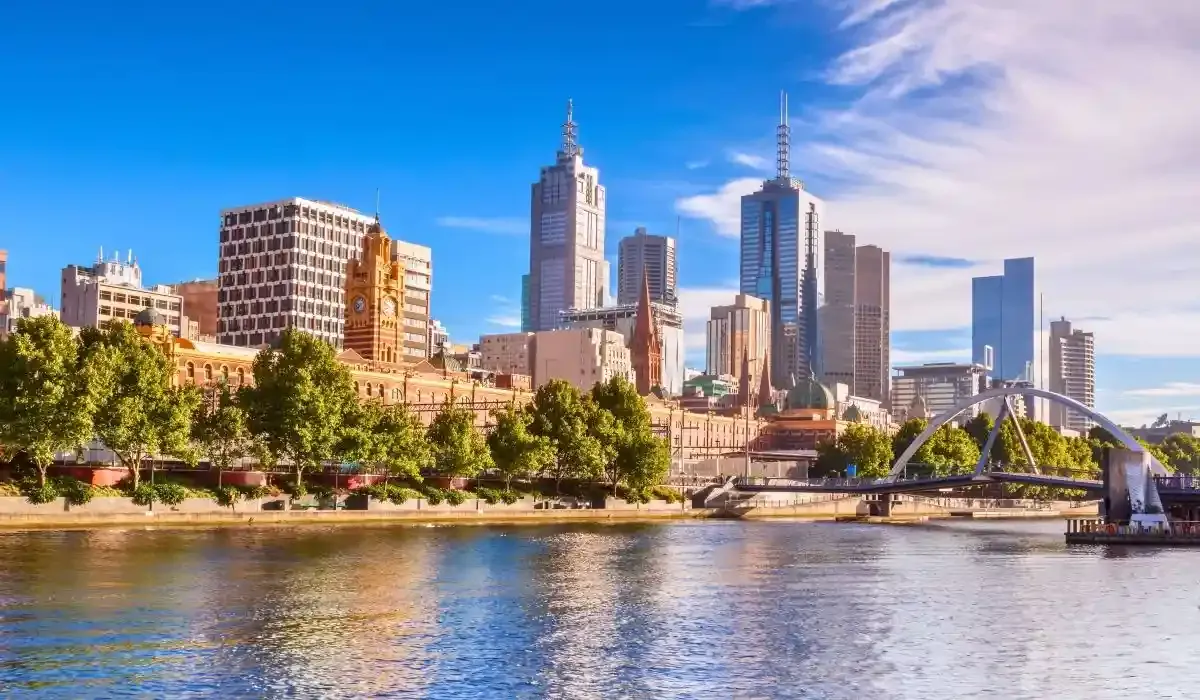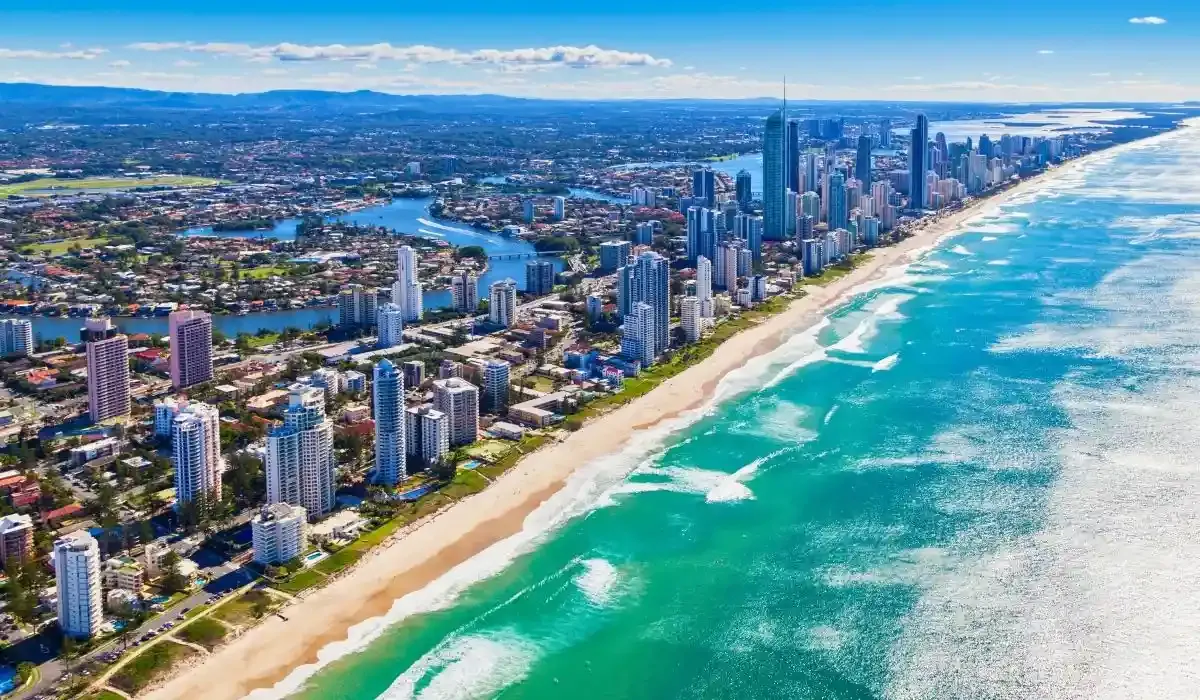Guide for Canadians Buying Property in Australia
Australia has long been a dream destination for Canadians, whether for vacation, relocation, or investment. With its stunning landscapes, warm climate, and vibrant cities, it's no wonder many Canadians are exploring the possibility of buying property in the Land Down Under. Whether you're looking for a vacation home along the coast, an investment in a growing market, or even a future retirement retreat, Australia offers diverse opportunities for property buyers.
However, purchasing property abroad comes with unique considerations and challenges, especially when dealing with regulations, international payments, and the local market. This guide is designed to help Canadians understand the key steps, legalities, and best practices for buying property in Australia, ensuring that you make informed decisions every step of the way.
Why buy property in Australia as a Canadian?
Australia has become an increasingly attractive option for Canadians looking to invest in property overseas, and for good reason. Here are some key advantages:
Diverse property options
Australia offers a wide range of property types to suit different needs. Whether you're seeking a modern apartment in a bustling city, a beachfront villa along the Gold Coast, or a rural retreat in the picturesque countryside, there's something for every buyer. The diversity of property types allows Canadians to invest based on lifestyle preferences or long-term goals.
Attractive lifestyle
Australia boasts a high quality of life, with a laid-back lifestyle, beautiful beaches, warm weather, and excellent outdoor recreational opportunities. Many Canadians choose Australia as a study destination. On the other hand, for Canadians looking to escape cold winters or enjoy a more relaxed pace of life, Australia's climate and coastal beauty offer an ideal setting for vacation homes, retirement properties, or permanent relocation.
Rental income potential
With its growing population and thriving tourism industry, Australia has a solid rental market, particularly in urban areas and popular tourist destinations. This makes it an excellent option for Canadians looking to generate rental income from their property investment, especially in cities like Sydney, Melbourne, and Brisbane, which attract international students, professionals, and tourists.
Favourable investment conditions
Australia is known for its transparent and well-regulated real estate sector, providing a secure environment for foreign investors. Canadians can take advantage of strong legal protections, clear property rights, and a stable political climate, ensuring peace of mind when purchasing property abroad.
Cultural similarities and ease of transition
Canadians often find it easier to transition to life in Australia due to the cultural similarities between the two countries. Both countries share English as the dominant language, and the cultural and social structures are relatively similar, making it easier for Canadians to adapt to life in Australia.
Dual residency and retirement opportunities
Australia offers residency options for Canadians considering long-term relocation or retirement, including visas for retirees and those seeking to invest. Buying property in Australia can provide a pathway to spending more time in the country, making it an appealing option for Canadians planning for their future.

Eligibility for Canadians buying property in Australia
Buying property in Australia as a Canadian is possible, but it comes with certain regulations and requirements. Understanding the eligibility criteria will help ensure a smooth purchasing process.
Foreign Investment Review Board (FIRB) approval
One of the main requirements for Canadians and other non-residents buying property in Australia is to seek approval from the Foreign Investment Review Board (FIRB). This government body ensures that foreign property purchases align with Australia's national interest. The good news is that FIRB approval is typically granted for residential properties, but there are specific rules depending on the type of property you want to purchase:
New properties: Foreigners, including Canadians, are encouraged to purchase new or off-the-plan properties, as it promotes growth in the housing market. FIRB approval is generally easier for new properties.
Established properties: If you're looking to buy an existing property, FIRB approval may be granted if the property is being used for redevelopment. The redevelopment must increase the housing supply in some way, such as turning a single-family home into multiple dwellings.
Foreign buyers are required to pay an application fee when submitting their request to the FIRB. The fee varies based on the property's value, so it's important to budget for this cost when planning your purchase. Fees range from AUD 6,350 for properties under AUD 1 million to higher amounts for more expensive properties.
Financing considerations for foreign buyers
Obtaining financing in Australia as a foreigner can be more challenging compared to locals, but it is possible. Australian banks may require higher deposits (often around 20-30%) for foreign buyers, and you may need to prove your financial stability and income. It's also crucial to consider the exchange rate between CAD and AUD when transferring funds for the property purchase.
Legal requirements and due diligence
When buying property in Australia, hiring a lawyer or conveyancer familiar with Australian property law is essential. They will ensure your purchase complies with all local regulations and assist with FIRB applications, title searches, and contract reviews.
Best places to buy property in Australia
Australia offers a wide variety of property markets, each with its own unique appeal. From bustling cities to serene coastal areas, Canadians have various options when considering where to buy property in Australia. Here are some of the best places to invest:
Sydney
Sydney, Australia's largest city, is known for its iconic landmarks like the Sydney Opera House and Harbour Bridge and its stunning beaches. The real estate market here is highly competitive, with properties in high demand. It's a global city with a strong economy, vibrant culture, and a stable rental market, making it an excellent investment for those seeking capital appreciation or rental income. Property prices in Sydney are among the highest in Australia, but the city's global appeal ensures long-term growth and investment returns.
Melbourne
Melbourne is known as Australia's cultural capital, offering a rich arts scene, world-class dining, and a diverse population. It's an excellent choice for investors and those looking for a lifestyle-focused property. With a steady property market and strong demand for rentals, Melbourne offers consistent growth potential. Its highly livable environment makes it an excellent choice for Canadians seeking a second home or relocation. Melbourne has a mix of high-end city apartments and more affordable suburban homes, offering something for every budget.
Brisbane
Thanks to its affordability and subtropical climate, Brisbane is quickly becoming a popular destination for property buyers. As one of the fastest-growing cities in Australia, it's seen a surge in demand for both residential and investment properties. With lower property prices than Sydney and Melbourne, coupled with solid growth potential, Brisbane is an attractive option for Canadian buyers. The property market in Brisbane offers a mix of inner-city apartments and larger suburban homes, with potential for high rental yields.
Gold Coast
The Gold Coast is famous for its stunning beaches, vibrant nightlife, and world-class theme parks. It's a tourist hotspot, making it ideal for investors looking to tap into the vacation rental market. The Gold Coast is a fantastic choice if you're looking for a coastal property with strong rental income potential. The area also offers a relaxed lifestyle for those planning long-term stays. Properties range from luxury beachfront homes to more affordable apartments, making them accessible to a range of buyers.
Perth
Perth is the capital of Western Australia and has a thriving economy driven by mining, energy, and agriculture. It offers a more laid-back lifestyle compared to Sydney or Melbourne, with less competition in the property market. For Canadians looking for an affordable property in a city with growth potential, Perth provides excellent value. Its proximity to Asia also makes it an ideal investment for those interested in international trade or business. Perth offers larger properties at lower prices than the East Coast, making it a good option for families or those seeking space.
Adelaide
Adelaide is often overlooked, but it's one of Australia's most affordable capital cities with a high quality of life. Known for its festivals, wine regions, and cultural attractions, Adelaide is a hidden gem for property buyers. Adelaide offers great affordability, a relaxed lifestyle, and room for potential growth. For Canadians seeking a lower-cost entry into the Australian market, it's an excellent choice. Expect lower property prices compared to major cities, with a focus on family homes and suburban living.
Hobart (Tasmania)
Hobart, the capital of Tasmania, has been gaining popularity due to its natural beauty, slower pace of life, and increasing property values. As one of Australia's most affordable capital cities, Hobart offers strong growth potential and a unique lifestyle, ideal for Canadians looking for a peaceful retreat or investment property. Hobart offers a mix of historic homes and modern developments, often surrounded by stunning landscapes and close to Tasmania's famed wilderness.
Steps to buying a home in Australia as a Canadian
Purchasing property in Australia as a Canadian can be smooth if you follow the proper steps. Here's a guide to help you navigate the buying process efficiently:
Step 1 - Research the market
Before diving into the property search, it's important to research the Australian property market. Understand which cities or regions align with your investment or lifestyle goals. Look into property prices, growth potential, and rental yields in different areas, such as Sydney, Melbourne, Brisbane, or coastal towns.
Step 2 - Apply for Foreign Investment Review Board (FIRB) approval
As a Canadian, you'll need to apply for approval from the Foreign Investment Review Board (FIRB) before purchasing property in Australia. This is a mandatory step for foreign buyers to ensure compliance with Australian laws. FIRB approval is generally granted for new properties, vacant land, and redevelopment projects, while restrictions apply to established properties. Be sure to factor in the application fee, which varies based on the property's value.
Step 3 - Engage a real estate agent
Work with a local real estate agent who has experience with foreign buyers. They can help you identify suitable properties, provide insights into the market, and guide you through the buying process. A real estate agent will also assist with negotiations, ensuring you get the best possible deal.
Step 4 - Hire a lawyer or conveyancer
Engaging a lawyer or conveyancer specializing in Australian property law is essential to help with legal due diligence. They will review the contract of sale, perform title searches, and ensure the property is free from legal disputes, liens, or encumbrances. Your lawyer will also manage the FIRB application and assist in understanding your tax obligations.
Step 5 - Conduct inspections and due diligence
Before finalizing the purchase, arrange for property inspections, such as building and pest inspections, to ensure the property is in good condition. Your lawyer will also conduct a title search and ensure the property has no outstanding legal issues or unpaid taxes.
Step 6 - Make an offer and sign the contract
Once you've found a property that meets your needs, you can make an offer through your real estate agent. If the offer is accepted, you'll sign a contract of sale. In Australia, there is typically a cooling-off period (usually 5 days) that allows the buyer to change their mind without significant penalties.
Step 7 - Pay the deposit
Once the contract is signed, you are required to pay a deposit, typically 10% of the property's value. This secures the property while the legal and financial processes are completed.
Step 8 - Finalize financing and settle the purchase
After the deposit is paid, your bank or lender will finalize the financing. Settlement typically occurs 30–90 days after signing the contract. On the settlement date, the remaining balance of the purchase price is paid, and the property is officially transferred into your name.
Step 9 - Register the property
Once the sale is complete, your lawyer will register the property with the local land registry, ensuring the title is officially transferred to you. You'll also need to ensure that all related taxes, including stamp duty and property taxes, are paid.
Step 10 - Ongoing management and costs
If you plan to rent out the property, you may want to hire a property management company to handle tenants, maintenance, and rent collection. You'll also need to account for ongoing costs like property taxes, insurance, and maintenance.
How to get the best CAD to AUD exchange rate?
To get the best CAD to AUD exchange rate, it's important to avoid traditional banks, as they often offer less competitive rates and charge higher fees. Instead, using a specialized foreign exchange provider can help you secure better rates. These services offer mid-market exchange rates that are more favourable than those offered by banks, along with lower fees on international transfers. They often provide tools like forward contracts and rate alerts, allowing you to lock in a great rate or get notified when the exchange rate hits your desired target. By using such services, you can maximize the value of your Canadian dollars when converting to Australian dollars.

Costs involved in buying property in Australia
Stamp duty: Stamp duty is a tax levied on property purchases, varying by state and the property's value. As a foreign buyer, you may be subject to additional surcharges.
Legal fees, inspections, and additional costs: You'll need to budget for legal fees, property inspections, and other miscellaneous expenses like notary fees. These can amount to 1-2% of the property's value.
Ongoing costs: Property ownership in Australia comes with ongoing costs such as council rates, insurance, maintenance, and utilities, which vary based on the property and location.
FIRB application fee: Foreign buyers must pay a Foreign Investment Review Board (FIRB) application fee, which ranges from AUD 6,350 for properties under AUD 1 million to higher amounts for more expensive properties.
Taxes: Other taxes include property taxes and capital gains tax if you sell the property. Rental income is also taxable and must be reported if you rent out your property.
Make currency conversions and global payments simpler with MTFX
When buying property in Australia as a Canadian, currency conversions and international payments are key components of the process. MTFX simplifies this by offering competitive CAD to AUD exchange rates, helping you get the most value for your money. Unlike traditional banks, which often charge higher fees and offer less favourable rates, MTFX ensures that your global payments are handled quickly and securely.
With real-time exchange rate monitoring and advanced tools like forward contracts and rate alerts, MTFX allows you to lock in the best possible CAD to AUD exchange rate or set up notifications for when rates hit your target. This is particularly useful when dealing with large property purchases, as even small fluctuations in the exchange rate can impact your total cost. Additionally, MTFX offers seamless payment solutions, ensuring your funds are transferred directly to Australian banks without delays or hidden fees.
Whether you are paying a deposit, completing the purchase, or managing ongoing costs like property taxes and maintenance, MTFX provides a reliable and cost-effective way to handle all your international financial needs. With MTFX, currency conversions and global payments have become simpler, more transparent, and more efficient.
Buy your dream property in Australia
Buying property in Australia as a Canadian offers exciting opportunities for investment, relocation, or a vacation home. By understanding the local market, managing legal requirements, and securing the best currency exchange rates, you can make informed decisions and ensure a smooth purchasing process. With trusted partners like MTFX to simplify your currency conversions and global payments, you can focus on finding the perfect property in Australia while maximizing your savings. Whether you're seeking a beachfront villa or an urban apartment, this guide will help you confidently take the next steps in your property investment journey.
Create your MTFX account in a few clicks and save thousands of dollars on your next property purchase.
FAQs
1. Can Canadians buy beach property in Australia?
Yes, Canadians can buy beach property in Australia, but they must obtain approval from the Foreign Investment Review Board (FIRB) if they are not Australian residents. Beach properties are highly sought after, so it's important to act quickly and comply with FIRB regulations.
2. What are the main costs involved in buying property in Australia as a Canadian?
Key costs include stamp duty (which varies by state), legal fees, FIRB application fees, property inspections, and ongoing expenses such as property taxes and maintenance. It's important to budget for these additional costs when planning your purchase.
3. How does the cost of living in Australia compare to Canada?
The cost of living in Australia is similar to Canada but varies by location. Major cities like Sydney and Melbourne tend to be more expensive, especially in terms of housing. However, groceries, transportation, and healthcare costs are comparable, while smaller cities and rural areas may be more affordable.
4. Can I live in Australia full-time if I buy property there?
Buying property in Australia does not automatically grant you residency. However, you can apply for various visa options, including retirement or investment visas, which may allow you to live in Australia for extended periods if you meet certain criteria.
5. Is buying beach property in Australia a good investment?
Yes, beach properties in Australia are often considered a solid investment due to their high demand for both permanent residents and tourists. Coastal areas like the Gold Coast, Sunshine Coast, and Byron Bay are popular among foreign buyers and offer strong rental yields.
6. What are the best locations for Canadians to buy property in Australia?
Popular locations for Canadian buyers include Sydney, Melbourne, Brisbane, and the Gold Coast. Each city offers a unique lifestyle, from vibrant city living to relaxed coastal vibes, making them ideal for both investment and personal use.
7. What should I consider when buying beachfront property in Australia?
Consider factors like proximity to amenities, erosion risks, local council regulations, and potential rental income. Beachfront properties are highly desirable, but they can come with higher maintenance costs due to exposure to coastal weather conditions.
8. What is the process for transferring funds from Canada to Australia for a property purchase?
You'll need to convert Canadian dollars (CAD) to Australian dollars (AUD) for the purchase. Using a specialized foreign exchange provider like MTFX will help you get the best exchange rates and minimize fees. It's also advisable to lock in rates through forward contracts to avoid fluctuations.
9. What is the property market like in Australia for foreigners?
Australia has a stable and growing property market, especially in cities like Sydney and Melbourne. While there are restrictions on foreign ownership (such as FIRB approval for established properties), foreigners are encouraged to invest in new or off-plan developments, which offer great potential for capital growth.
10. How does the Australian healthcare system compare to Canada's?
Australia has a high-quality healthcare system, including both public and private options. As a Canadian living in Australia, you may need private health insurance, especially if you're on a temporary visa. Australia's healthcare system is efficient, but healthcare costs can be higher for non-residents without insurance.
Related Blogs
Stay ahead with fresh perspectives, expert tips, and inspiring stories.

Keep updated
Make informed decisions
Access tools to help you track, manage, and simplify your global payments.
Currency market updates
Track key currency movements and plan your transfers with confidence.
Create an account today
Start today, and let us take the hassle out of overseas transfers.


